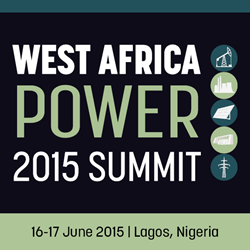Solving the energy crisis in West Africa; crucial months ahead for the Power industry


London (PRWEB UK) 28 May 2015
The frequent power shortages currently happening in West Africa are causing a significant human and economic development slow-down and have forced ECOWAS’ Governments to initiate several measures to remedy the energy crisis.
Nigerian government recently announced that a 10MW capacity wind farm, the largest in West Africa, has started functioning on trial basis. Situated in the Northwestern part of the country, the project is the first wind-based energy development.
Ghana, which is suffering from interrupted power supply after a long period of stability, is planning to double its Power output before 2020 thanks to power purchase from Independent Power Producers (IPPs) and plants upgrade. President Mahama promised to inject an additional 3,665 MW of power into the national grid.
Niger’s power production capacity meets only one third of the country’s needs, creating inevitable blackouts that are crippling the country’s economy for more than 3 weeks. The country, one of the world’s poorest, urgently requires significant Energy investment to end power outages and avoid further generators burnt outs caused by round-the-clock production.
Additionally, a recent IEA report stated that increasing the electrification rate in sub-Saharan Africa from 32% today to 70% in 2040 would cost $ 205 billion in capital investment. The largest share ($ 75 billion) will go to West Africa, with Nigeria accounting for about 60% of the projected investments.
Next month, IRN will organise on 16-17 June, in Lagos, the West Africa Power 2015 Summit that will assess the solutions and plans formed by West African nations to improve their country’s electrification and boost their economies. This includes, amongst others, the privatisation of their power sector, further investment on clean energy and the construction of new turbines.
The Energy Ministers of Nigeria, Togo, Niger and Mali along with current operators, utilities and service providers will provide 100 high-profile delegates with the latest insights for them to learn about the regional opportunities and eventually get involved in the region.
More information can be found on the website http://www.westafricasummit.com
The official Twitter hashtag to join the discussion is #WAPower.